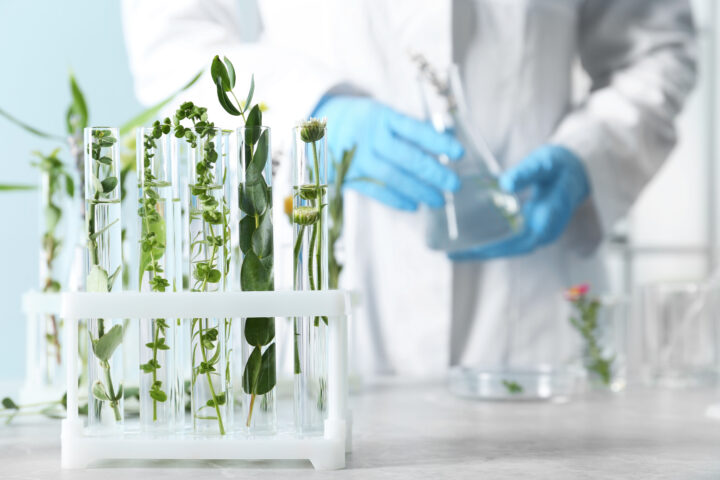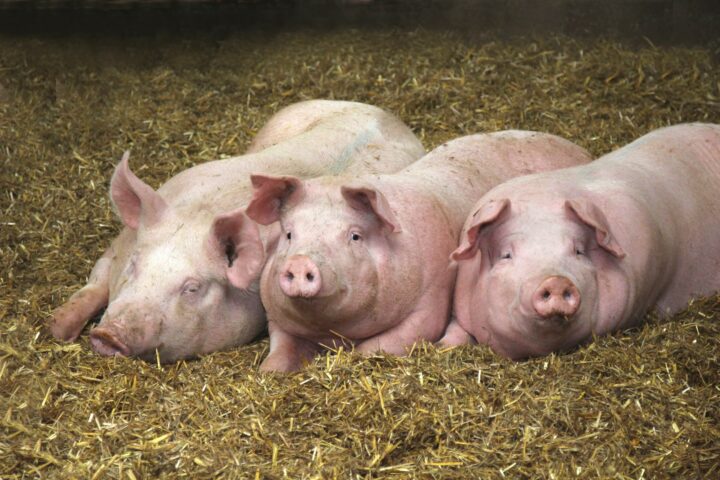
Genetic engineering? Yes, of course.
As a consumer, you often don't know: products advertised as GMO-free have long contained genetic engineering. This is a thorn in the side of opponents of genetic engineering. But it is easier to keep quiet about the ‘scandal’ – because something we have been eating for a long time no longer scares us.
Monday, August 11, 2025
‘GMO-free as a quality feature’ is the headline of Martina Munz, a member of the National Council and initiator of the food protection initiative at the 15th Migros Consumer Conference on 4 September 2024. The launched the day before, demands that all forms of genetic engineering in food must be declared: ‘Anyone who brings genetically modified organisms into circulation must [...] label them as such,’ according to the text of the initiative.
Mutations caused by radioactivity and chemicals
‘The two most important conventional genetic engineering techniques in plant breeding are classical mutagenesis and transgenesis,’ according to a statement by the Federal Council announcing a special law for new breeding methods in Switzerland. Indeed, radioactivity or chemicals can trigger a huge number of random mutations in the genetic material, the details of which are unknown. And: such mutagenesis techniques have been used in plant breeding for over 50 years and are constantly being further developed.
In July 2018, the European Court of Justice (ECJ) also ruled that mutagenesis using radiation or chemicals results in a ‘genetically modified organism’ (GMO). Since then, such plants have also been considered ‘genetic engineering’, but are nevertheless exempt from all the provisions intended for them. In particular, neither the EU nor Switzerland requires their labelling. Mutagenesis through radiation or chemical mutation are ‘legally permitted genetic engineering techniques’ in the EU and Switzerland.
An unpleasant truth for anyone who rejects genetic engineering
Consumers are generally unaware that even products advertised as ‘GMO-free’ have contained genetically modified organisms for decades. The same applies to our neighbour Austria. There, too, genetically modified foods have been on our plates for decades, as reported by ORF-Spezial. Numerous plants, including almost all types of durum wheat, have been developed using this breeding technique. This affects over 3,000 varieties, including some that are grown in organic farming.
Science journalist Ludger Wess sums it up on swiss-food.ch: ‘Without genetic engineering, nothing works!’ Whether in food, cosmetics or medicine, genetic engineering has long been part of our everyday lives.
The situation is quite different for new processes such as the CRISPR/Cas gene editing tool. Although they are based on individual, precisely known mutations, they are subject to an absolute moratorium in Switzerland and even research is restricted.
Experts worldwide recognise its enormous potential. Renowned agricultural scientist Urs Niggli also emphasises in his opinion piece in the ' NZZ ' the revolutionary possibilities offered by this technology: ‘Gene scissors are also revolutionising biological plant protection.’ By improving the resistance of plants, CRISPR-Cas9 can contribute to more sustainable farming methods.
Blindspot article
The myth of GMO-free
The co-initiator of the popular initiative ‘For GMO-free food (food protection initiative)’, Martina Munz, made no secret of this at the Migros consumer conference: «In my view, mutagenesis is genetic engineering and should be regulated as such». Accordingly, conventional mutagenesis should also be labelled as genetic engineering. Accordingly, this ‘permissible genetic engineering’ is also a thorn in the side of die-hard opponents of genetic engineering. In fact, the text of the proposal for the food protection initiative follows precisely the definition that, according to the ECJ and the interpretation of the Swiss authorities, also includes classical mutagenesis: ‘Genetically modified organisms are organisms whose genetic material has been altered in a way that does not occur under natural conditions by mating or natural recombination’. The text of the initiative thus calls for labelling of all genetically modified organisms – including those produced by classical mutagenesis.
However, classical mutagenesis using radioactivity or chemicals has not yet been mentioned in the high-profile campaigns against genetic engineering. It is easier to keep quiet about the ‘scandal’. After all, we are no longer afraid of something we have been eating for a long time. Furthermore, it would be difficult to find majorities in favour of now declaring thousands of proven foodstuffs as GMOs – or even to label them with the radioactivity or chemical warning symbol.
Agriculture between science and marketing
The Charta Quality Strategy for Swiss Agriculture insists that Swiss agriculture should refrain from ‘the use of genetically modified organisms’. The long-standing moratorium on genetic engineering suggests the same in popular parlance. How can this be reconciled with the fact that genetically modified plants have been thriving on Swiss fields and plates for years?
One answer to this question is provided by the ORF programme Eco Spezial entitled: Agriculture between science and marketing. Since man has been breeding, he has been modifying the DNA of his seeds. However, without prior technical knowledge, our cultivated plants also appear to be ‘given by nature’. Ultimately, it is the consumer who decides which marketing claims are effective. Consumers often respond to statements that emphasise naturalness and reject technology.
One thing is clear: the myth of ‘GMO-free Swiss agriculture’ is untenable from a scientific (and legal) point of view. When myths collapse, it can be painful for those who have cultivated them. And it comes at an inconvenient time for initiators who have to admit that their demand for labelling affects the food we consume every day...
Sources
Kindly note:
We, a non-native editorial team value clear and faultless communication. At times we have to prioritize speed over perfection, utilizing tools, that are still learning.
We are deepL sorry for any observed stylistic or spelling errors.
Related articles

With false narratives against genetic engineering
To denigrate green genetic engineering, narratives that do not stand up to scrutiny keep popping up in the public debate. The aim in each case is political. Recently, the false claims are intended to prevent the regulation of new breeding methods such as Crispr Cas from being technology-friendly.

Green biotech: safety concerns no longer hold water
At the end of October, swiss-food.ch hosted a film screening and panel discussion in Zurich on the subject of genome editing entitled “Between Protest and Potential”. The well-attended event dealt with the emotional debates in recent decades surrounding genetic engineering. The event showed that the situation has changed fundamentally.

What’s Really in Your Shopping Basket
Genetic engineering in our shopping basket? Yes – and much more often than we think. Whether it’s pasta, bread or vegetables: many of the everyday products we consume come from mutation breeding, which involves altering the genome and is considered safe. It’s high time to debunk the common myths.

Genomic breeding methods are not given a chance to prove themselves
Modern genomic breeding methods are legally classified as genetic engineering – and are therefore still effectively blocked. Yet we have been eating genetically modified plants for decades, just under the label of “classical mutagenesis.” The new, more precise techniques are regulated more strictly than the old ones, even though they are considered safer from a scientific perspective. A contradiction that urgently needs to be corrected. The EU is setting a good example.

No Pig Business: Why Testicle-Free Boars Are a Clear Win for Animal Welfare
New breeding methods are opening up new possibilities in both plant and animal breeding. They allow targeted genetic changes that can make animals more resilient, adaptable, and healthier.

Stagnation instead of progress: Switzerland risks falling behind in new breeding techniques
An overview article in Schweizer Bauer shows how much the new breeding methods are preoccupying farming circles. Once the consultation process on the federal law has been completed, a bill is expected – then it will become clear whether there is actually the political will to approve it.

